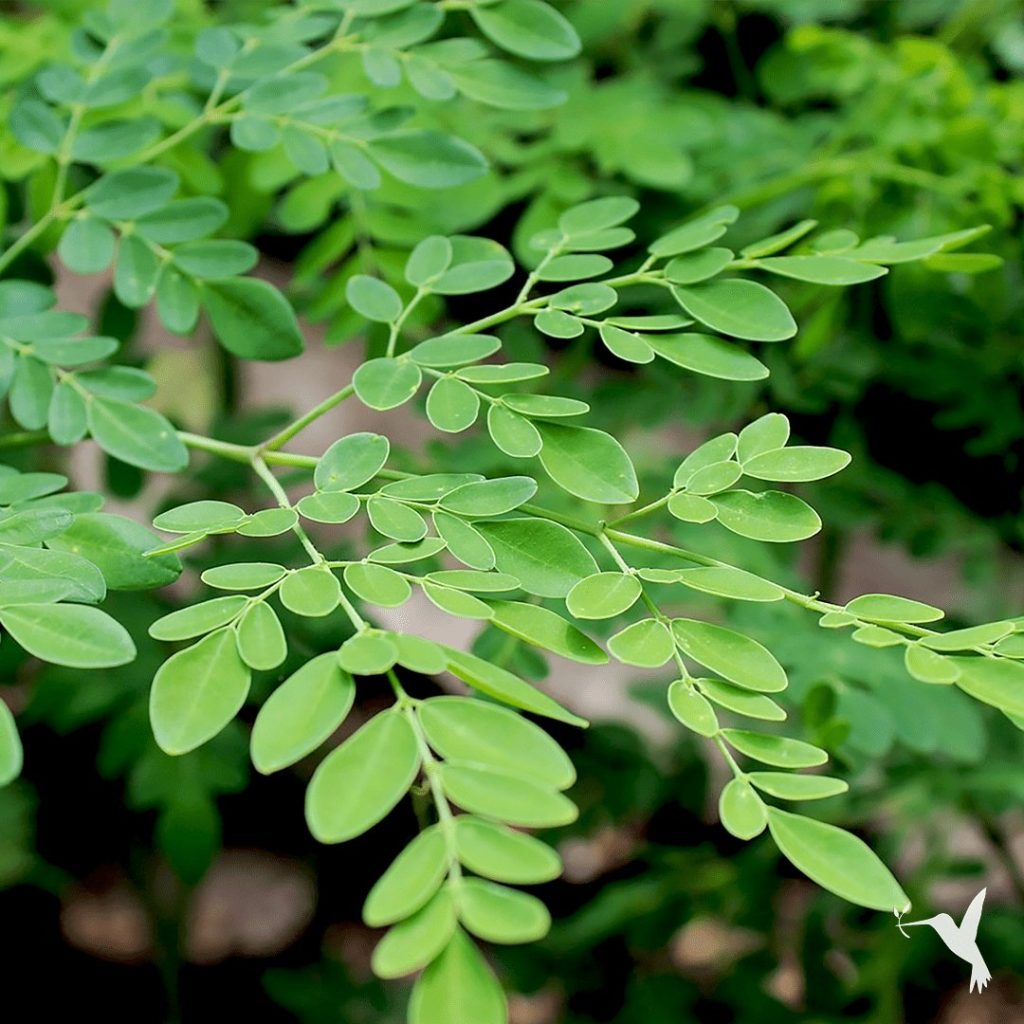Moringa in Ayurveda: The Sacred Herb for Holistic Health
The herb moringa, scientifically known as Moringa oleifera, has been utilized for ages in traditional medical systems, especially Ayurveda. Known as the “Miracle Tree,” Moringa is known for its many nutritional and therapeutic uses. It is regarded as a useful plant in Ayurveda for fostering general wellness and regulating the body’s doshas (Pitta, Kapha, and Vata).
Moringa in Ayurvedic Tradition
According to Ayurveda, mental, physical, and spiritual balance is the key to good health. Every component of nature, including herbs, is essential to preserving this balance. It is also known as Shigru in Sanskrit, has a long history of use in Ayurvedic medicine. It is highly valued for its powerful capacity to support vitality and balance the body’s internal systems.
The plant is valued for its capacity to nourish, purify, and revitalize the body, promoting good health and warding off illness. Because of its special combination of qualities, Ayurvedic practitioners consider sahijan to be a universal treatment that may treat a wide range of ailments, from digestive problems to skin concerns.
Ayurvedic Properties
Because of its distinct blend of Rasa (taste), Virya (potency), Vipaka (post-digestive impact), and Prabhava (special effect), sahijan is used in Ayurveda. These components provide the following Ayurvedic definition of moringa’s medicinal benefits:
• Rasa (Taste): It has a slightly pungent, astringent, and bitter flavor. Because of this combination, it helps balance excess Pitta (the dosha linked to heat and digestion) and Kapha (the dosha responsible for stability and structure).
• Virya: It is regarded as having an Ushna (hot) character. This makes it perfect for soothing the body’s overabundance of coolness, which is frequently associated with ailments like congestion or slow digestion. It is particularly helpful in treating ailments linked to sluggish energy or a low metabolism.
• Vipaka (Post-Digestive Effect): Although it may first taste bitter or astringent, its after effects typically support and feed the body with a sweet post-digestive effect. This characteristic supports tissue regeneration and long-term health advantages.
• Prabhava (Special Effect): According to Ayurveda, it is a potent rejuvenator that supports purification (Shodhana) and nourishes the tissues (Dhatus). It is claimed to possess the special capacity to revitalize the mind and body, bringing about a feeling of harmony and vitality.
3. Healing Properties of Moringa in Ayurveda
a)Purification and Detoxification
In Ayurveda, sahijan is prized for its capacity to cleanse the body and encourage the removal of excess toxins poison. Its bitter and astringent properties make it a great herb for boosting liver and kidney function and removing stored waste from the digestive system. In order to keep a healthy metabolism, it aids in the stimulation of toxin disposal.
b)Balancing the Doshas
Vata Dosha: Excess Vata, which is linked to dryness, coldness, and irregularity, can be calmed by the warm, bitter properties of moringa. It is well recognized to promote digestion, increase circulation, and alleviate Vata-related ailments like dry skin, bloating, and constipation.
Pitta Dosha: Additionally, moringa helps to balance and calm Pitta, which controls body heat and metabolism. The plant is perfect for soothing ailments like skin rashes, heartburn, and acidity brought on by too much Pitta because of its cooling and anti-inflammatory qualities.
Kapha Dosha: Kapha, which is associated with lethargy, excess mucus, and weight gain, is balanced by the herb’s mild and slightly spicy flavor. Moringa is especially beneficial for those with Kapha imbalances because of its capacity to improve energy, promote digestion, and remove excess mucus. , especially during colder months
c)Supporting Digestion and Metabolism.
A strong digestive fire (Agni) is considered the foundation of wellness in Ayurveda. It is a crucial herb for promoting better digestion and avoiding typical digestive issues including gas, bloating, and constipation because of its capacity to regulate the digestive system and strengthen Agni. It is a great help for people with slow digestion because it stimulates digestive enzymes and encourages the right absorption of nutrients.
d)Nourishing the Tissues (Dhatus)
In Ayurveda, this is regarded as a Rasayana, or renewing herb. It provides vigor and vitality by nourishing the body’s tissues (Dhatus). It promotes the synthesis of Rakta (blood) and Rasa (plasma), which assist the maintenance of strong bones, muscles, and joints as well as healthy, radiant skin. It is also known to increase physical endurance and energy levels.
e)Enhancing Skin and Hair Health
Ayurveda frequently suggests to support healthy hair and young skin. Its antibacterial and anti-inflammatory qualities aid in the treatment of psoriasis, eczema, and acne. Preventing premature aging and preserving skin suppleness are further advantages. Sahijan oil is also used in hair care products to prevent dandruff, encourage hair growth, and nourish the scalp.
Moringa in Ayurvedic Formulations
It is frequently used in Ayurveda in a number of ways, either as a stand-alone supplement or as a component of conventional treatments:
•Powder: Ayurvedic treatments commonly use Moringa leaves in powdered form. It can be used with honey, ghee, or warm water to create a tonic that aids in dosha balancing and body detoxification.
• Oil: The seeds’ oil is used in Ayurvedic remedies for both internal and exterior use. In addition to being administered topically for skin and hair care, it is frequently used in therapeutic massage to ease joint stiffness and muscular discomfort.
• Capsules: Ayurvedic doctors frequently suggest taking SHIGRU in capsule form as a supplement to promote overall health and wellness for people who want a more convenient way to ingest the plant.
Moringa’s Role in Ayurveda for Disease Prevention
Prevention is always given prioritized over treatment in Ayurveda. In order to avoid illness and preserve long-term health, moringa is frequently suggested as a daily tonic. Because of its anti-inflammatory, antioxidant, and immune-boosting qualities, moringa is said to:
- Increase the body’s resilience to infections.
- Boost circulation and clear blockages in the circulatory system.
- Encourage longevity and slow down the aging process.
You can visit our Youtube channel to get knowledge about other Products.
To get more information click here

